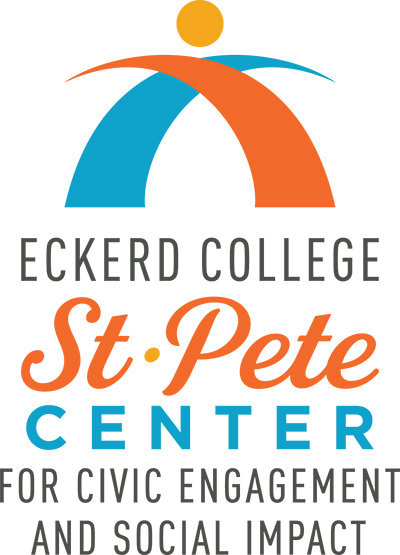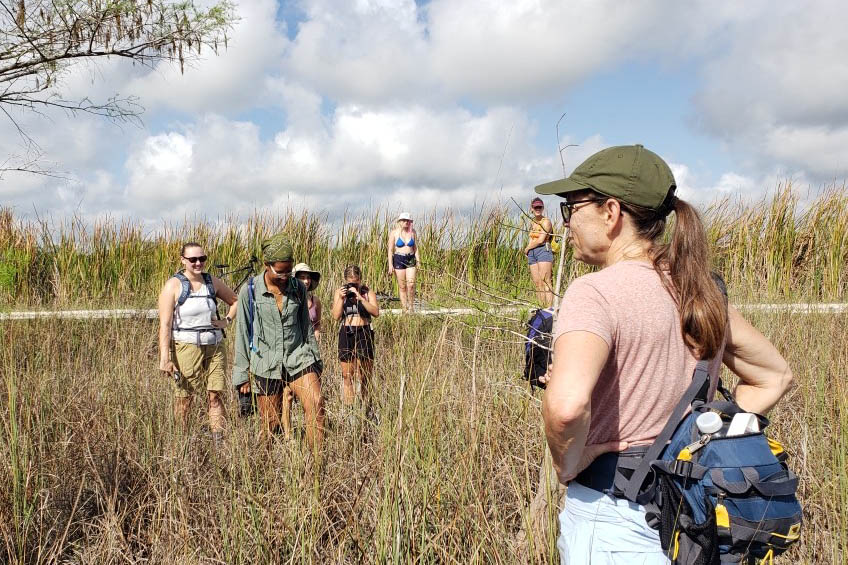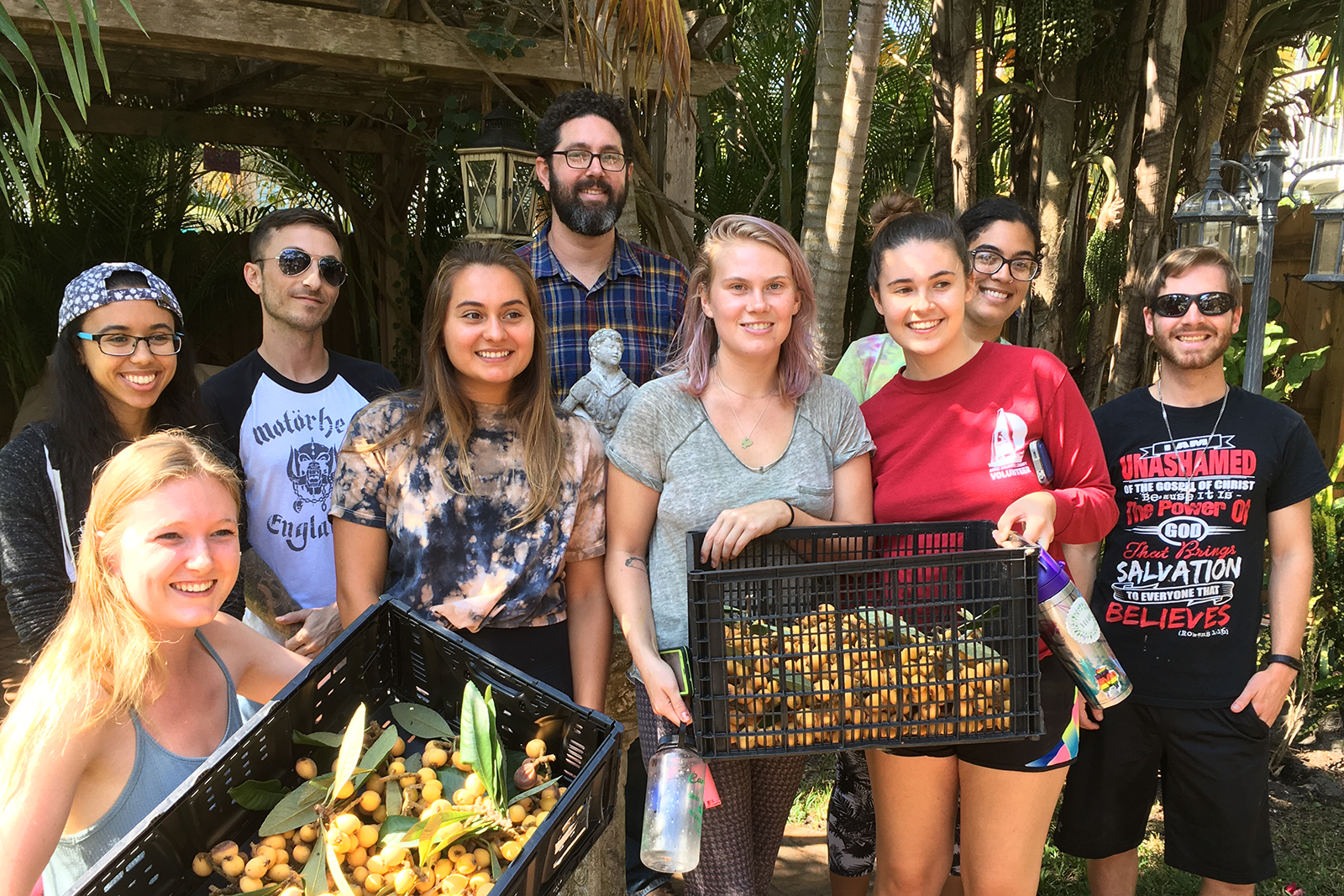Two professors working on projects that examine issues of equity through an environmental lens will serve as inaugural Faculty Fellows of the Eckerd College St. Pete Center for Civic Engagement and Social Impact.
Expected to launch in the fall, the St. Pete Center will expand existing and build new relationships within the city to create mutually beneficial research, teaching and service opportunities for our faculty and students. ECSPC work will focus on four areas: building a productive, equitable and inclusive economy; promoting environmental resilience, sustainability and justice; fostering arts, culture and innovation; and advancing human rights, dignity and opportunity.
When Associate Professor of Environmental Studies Hilary Flower, Ph.D., and Environmental Studies Instructor, Internship Coordinator and Eckerd College Community Farm Committee member David Himmelfarb, Ph.D., learned about the ECSPC Faculty Fellows program, they each saw an opportunity.

Himmelfarb and the Farm Committee have spent the last year working across campus and with more than 16 community organizations to launch the EC Community Farm and find a way to bring the education aspects to a broader audience beyond campus.
“I’m really excited about the opportunity,” Himmelfarb says. “I’m grateful to work with individuals and organizations to make this project come to be.”
His proposal, “Harnessing People Power: Creating a Knowledge Hub to Support a More Just and Sustainable Local Food System in St. Petersburg,” will task the students in his “Food and Sustainability” and “Food Movements” courses with learning more about local food justice, urban agriculture and garden education initiatives. Using Reflective Service-Learning hours, students will map the initiatives and build relationships with their programs in an effort to create a repository of knowledge for collaborative problem-solving.
“Creating the hub is important because sometimes if you have a lot of different groups working toward the same goal, knowledge gets lost,” Himmelfarb says. “Having a centralized place [like the EC Community Farm] where all the entities can come and talk about issues, and share that information, will help grow the movement and aid any new groups who are looking to get started.”

Associate Professor of Environmental Studies Hilary Flower (right) teaching in Big Cypress National Preserve. Photo: Judy McIlrath
Flower thought the focus areas of the St. Pete Center fit nicely within the project she’d set out to start with Director of Digital Strategy and Communications Michel Fougères. The two had been discussing partnering with local reforestation groups to plant trees in underserved communities to improve air quality and habitability. Called “Planting Seeds for Environmental Justice in St. Pete,” the multiyear project would use local resources to identify a pilot community to begin building relationships with homeowners and connecting nonprofits to people in need.
“The more we talked to community partners about this project, the more we learned it was about more than just planting trees,” Flower says. “You have to build relationships with residents first. And then the tree will come.”
Outside of improving the climate in communities, the project will have the dual effect of providing Global Environmental Change students, who may be overwhelmed with the enormity of environmental crises, with an actionable step toward making a difference.
“A lot of my students are stressed and overwhelmed. More so than in other majors, environmental studies students learn about many overlapping environmental issues and how things got so bad, and they feel a kind of hopelessness,” Flower says. “Our job as faculty is to pull them forward and show them that, yes, the problems are huge but there are ways individuals can come together to improve the future.”
Each Faculty Fellow will receive a $500 grant and a course release—the ability to teach one fewer class each year—in order to work on the project, says Associate Dean of Faculty Jessica Thonen, who shares the title of ECSPC co-director with Associate Professor of Management Jennifer Knippen, Ph.D.
Faculty Fellows also will receive some administrative support from the St. Pete Center.













